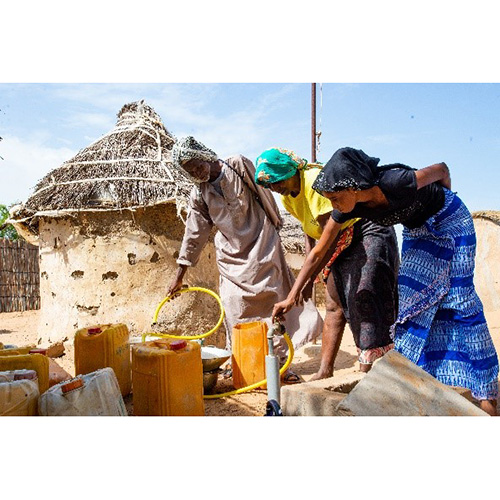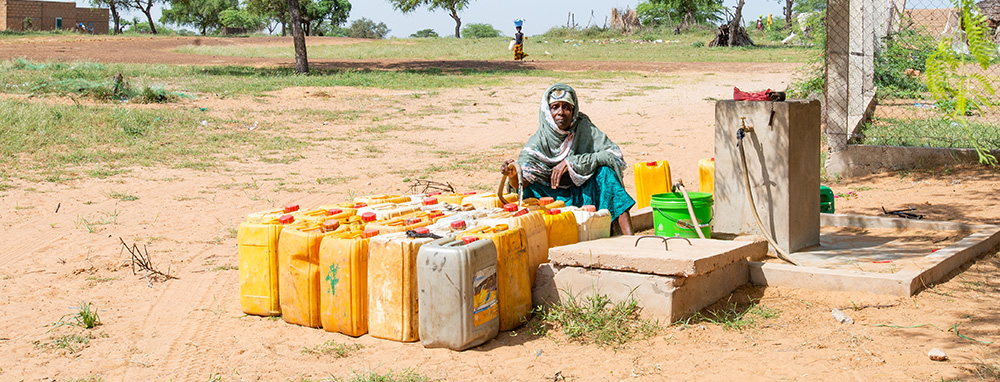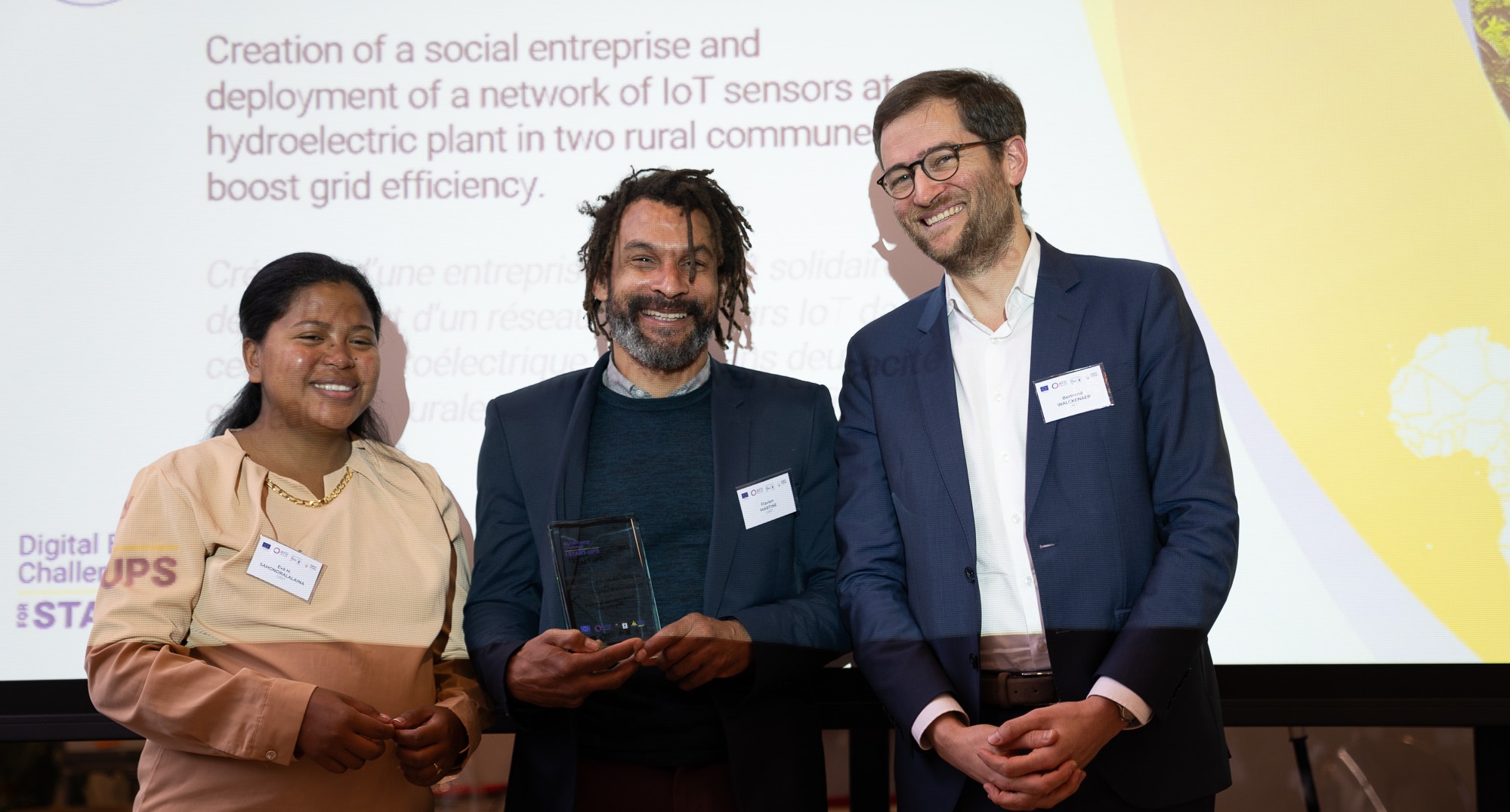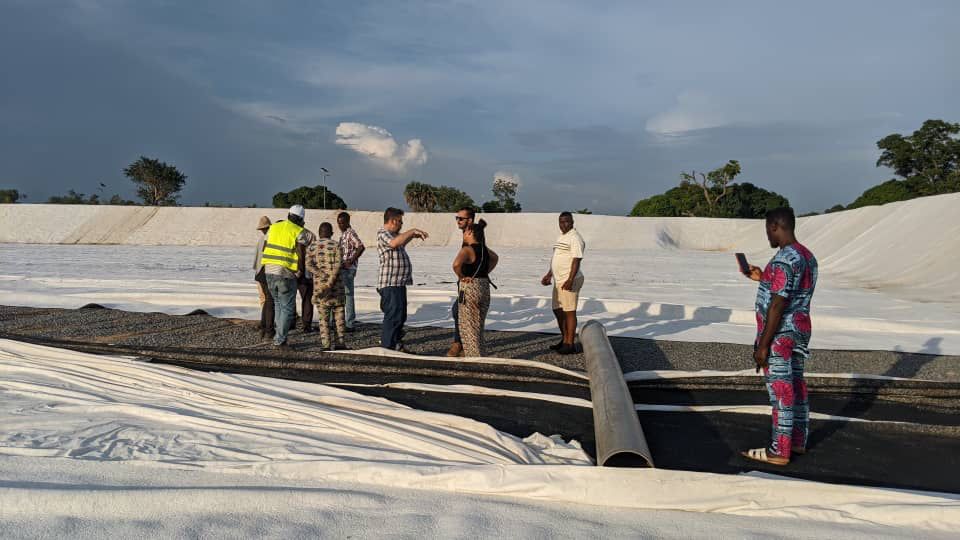Access to sustainable water and sanitation services remains a major challenge in Mauritania. In rural and semi-urban areas, rates of access are 50 % and 19 % respectively. In ten years of implementation, the programme to support communes’ initiatives for hydraulics and sanitation in Mauritania (Aicha Rim) enabled six communes to provide new access to drinking water for 62,000 people and access to improved sanitation for 36 public institutions, mainly schools.
The programme is based on two pillars: on the one hand, strengthening of project owners, coordination of work, choice of management and monitoring of services; on the other hand, professionalisation of water stakeholders (operators and structures in charge of monitoring and regulation). In order to underpin its policy for development of local regulation and to make evolutions coherent, the project called upon citizen participation by involving young peoples’ associations.
The third phase of the Aicha Rim programme, supported by the Île-de-France Water syndicate (Sedif), the City of Paris, the EGMA association, the Mauritanian communes and the Agency for promotion of universal access to services (Apaus), was completed at the end of 2019. Given the work that remains to be done in order to achieve the Sustainable development goals (SDGs), a new phase is currently being prepared.
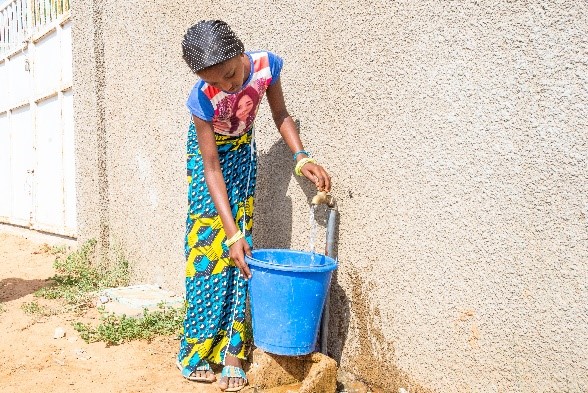
In Senegal, the Aicha programme, rolled out in the Saint-Louis region since 2012 (Aicha SL), saw the completion of its second phase last December, with encouraging results. 19,000 people benefitted from new access to drinking water, 60,000 from an improved drinking water service and 27,000 people – including 8,000 school children – from access to improved sanitation. The programme also made it possible to implement and deploy the first experience focusing on technical and financial monitoring of drinking water services in Senegal for 30 drinking water services, and the improvement of the drinking water and sanitation governance system in the Saint-Louis region.
A third phase of the programme will begin in 2020. Several new areas will be developed, complementing the objectives of strengthening stakeholders’ capacities and access to water and sanitation: support for the system to monitor the public service delegation put in place by the Office of rural drilling, integrated management of water resources and development of renewable energies. A new stage in the project’s lifespan will take place during the 9th World Water Forum in Dakar in March 2021. This will provide an ideal opportunity to promote the contribution of local authorities to access to water and sanitation, with a view to achieving the SDGs by 2030.
